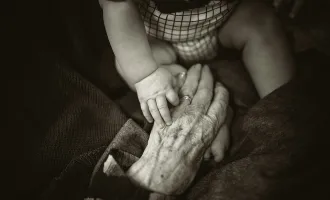
A Psychedelic Revolution
A clinical observation was made where a women who was once tormented and traumatized by an incident sits in a warm room comforted by a nurse and therapist who sit side-by-side. Electronic music plays in the background while the patient begins to moan and mutter in awe as the therapist listens with intent. The eureka effect rises to the surface of her minds eye and all of a sudden, in a flash of light, she gets it.
All these years of torment come to a close as her heart opens up intoxicated in a swirling cloud of ecstasy. She’s enlightened with a resolution to her once debilitating Post Traumatic Stress Disorder (PTSD) and now, like many others who’ve participated in these phase II clinical trials, is on her way to a happy and healthy life.
“Everything is about participant safety, every study is conducted different to the process of the needs of the client,” said Marcela Ot’Alora, a Psychotherapist exploring the safety and efficacy of MDMA-assisted psychotherapy for people with treatment-resistant PTSD. Ot’Alora and Bruce Poulter, a Registered Nurse, held a talk last month at the Quarterly Mental Health Symposium facilitated by the Psychiatric Mental Health Specialty Program at the UCSF School of Nursing. The focus of the talk was to inform students and faculty on this emerging modality that is soon to go into phase III clinical trials this summer.
Ot’Alora and Poulter are in partnership with The Multidisciplinary Association for Psychedelic Studies, a non-profit organization based out of Santa Cruz simply known as MAPS. They have sponsored these clinical trials and undertaken a $25 million plan to approve MDMA as a prescription medication by the Food and Drug Administration (FDA) by 2021.
When approved, the medication will be prescribed and administered in a controlled environment with psychotherapy and two trained clinicians on hand.
PTSD develops in people who have experienced dangerous or life threatening events such as sexual assault, exposure to war, or accidents. It affects about eight per cent of American adults in a given year, however; the disorder can develop at any age to include childhood.
Symptoms may last for months or even years and include strong and unwanted memories of the event, intense guilt or worry, anxiety, and avoidance of thoughts and situations that have to do with the trauma.
One population who is disproportionately affected by PTSD is veterans. Many who serve our country on high seas and foreign lands are put in harms way and adverse environments. As a result, they are exposed to major stressors that can put them at risk for PTSD and other co-morbid conditions. The Department of Veterans Affairs suggests that 10% to 18% of the 2.5 million Iraq and Afghanistan war veterans are likely to have suffered PTSD after they return from deployment, and many have deployed multiple times.
The current treatments for PTSD include medications, various types of therapy, or a combination of the two. The only two FDA approved medications for PTSD are Selective Serotonin Reuptake Inhibitors or SSRI’s, which have small to medium effect in the reduction of symptoms. Furthermore, what’s integral to overcoming PTSD is addressing the root cause of the issue, the experiential traumatic event.
One of the main reasons this medicine is so well tolerated as an adjunct to psychotherapy is due to its profound effects. Marcela reports that MDMA floods the body with hormonal and neurotransmitter resources such as prolactin, oxytocin, and serotonin.
This allows the authentic self to emerge and past fears become proportional to the present moment. The brain is also stimulated with increased activity in the frontal cortex where associations are made, and reduction of activity in the amygdala, where memories associated with emotion are stored. These mechanisms of action with the addition of psychotherapy synergistically work together and allow participants to start processing their trauma, on the road to recovery.
“Strengths of MDMA-Assisted Psychotherapy involve the depth and speed at which the psychotherapeutic healing occurs,” said Dr. Christopher Stauffer, Associate Professor of Psychiatry at UCSF and a leading researcher in mental health at the San Francisco VA Medical Center.
“Participants with refractory PTSD symptoms, who've often had decades of therapy and psychopharmacological treatments, often feel like they've completed years of therapy during an eight-hour MDMA-assisted psychotherapy session,” he said. “People are able to move through impasses, allowing individualized healing processes to unfold, and most participants no longer meet PTSD criteria after they've completed participation in the study.”
As this tool becomes increasingly useful among clinicians and more accepted by our collective society, the role of the nurse in entheogenic therapy is becoming increasingly important.


